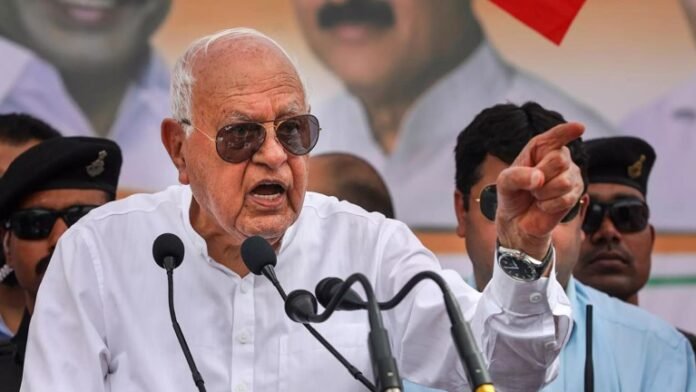Recently, former Jammu and Kashmir Chief Minister Farooq Abdullah responded to Prime Minister Narendra Modi’s remark about his wearing a ‘taveez’ (amulet) around his neck, stating, “Our religion taught us…,” in a poignant reminder of the diverse religious fabric that defines India. This exchange not only highlights the intersection of religion and politics but also underscores the importance of religious pluralism and tolerance in a diverse democracy.
The context of this exchange stems from Prime Minister Modi’s comments during a rally in Uttar Pradesh, where he questioned Farooq Abdullah’s decision to wear a ‘taveez’ around his neck despite being a Muslim. While addressing a crowd, PM Modi rhetorically asked, “Farooq Abdullah Sahab, you are our colleague in Parliament… Your father was also a big leader, we respect him… But you are publicly asking for votes in the name of a ‘taveez’.” This remark sparked controversy and drew criticism from various quarters, with many viewing it as an attempt to politicize religion for electoral gains.
In response to PM Modi’s comments, Farooq Abdullah, a seasoned politician known for his outspoken demeanor, chose to address the issue head-on. He asserted, “Our religion taught us…,” emphasizing the deeply ingrained principles of religious tolerance and coexistence within Islam. This simple yet powerful statement served as a reminder of the rich tapestry of religious beliefs and practices that coexist harmoniously in India, transcending narrow sectarian divides.
Farooq Abdullah’s response resonated with many who view religious pluralism as a cornerstone of India’s cultural heritage and national identity. In a country where diversity is celebrated as a source of strength rather than division, attempts to weaponize religion for political gain are often met with resistance and condemnation. Farooq Abdullah’s dignified response exemplified this spirit of resilience and defiance in the face of divisive rhetoric.
Moreover, the exchange between Farooq Abdullah and PM Modi highlights the broader issue of identity politics and the use of religious symbolism in electoral campaigns. In a deeply polarized political landscape, politicians often resort to invoking religious sentiments to mobilize support and consolidate their voter base. However, such tactics risk deepening communal fault lines and undermining the secular fabric of the nation.
At its core, Farooq Abdullah’s response encapsulates a broader message of inclusivity and acceptance, transcending the confines of partisan politics. By invoking the teachings of Islam to emphasize the values of compassion, tolerance, and coexistence, he underscored the universal principles that bind humanity together, irrespective of religious affiliation.
In a country as diverse as India, where every religion and faith tradition is accorded equal respect and recognition, attempts to question or challenge an individual’s religious practices are not only insensitive but also antithetical to the principles of secularism and pluralism enshrined in the Constitution. Farooq Abdullah’s dignified response served as a poignant reminder of the need to uphold these fundamental values in the face of adversity.
Furthermore, the exchange between Farooq Abdullah and PM Modi underscores the importance of civil discourse and mutual respect in public discourse. While political differences are inevitable in a democracy, it is essential to maintain decorum and refrain from resorting to personal attacks or inflammatory rhetoric. By engaging in a constructive dialogue based on mutual respect and understanding, leaders can set a positive example for their followers and foster a culture of tolerance and inclusivity.
In addition, Farooq Abdullah’s response to PM Modi’s remark about his wearing a ‘taveez’ around his neck serves as a poignant reminder of the enduring values of religious pluralism and tolerance in India. In invoking the teachings of Islam to emphasize the principles of coexistence and compassion, he reaffirmed the importance of upholding these values in the face of divisive rhetoric. As India navigates its complex socio-political landscape, it is imperative that leaders prioritize inclusivity and respect for diversity, ensuring that the country remains a beacon of religious harmony and pluralism for the world.

